
Let’s Talk Coffee 2018 brings its unique mix of coffee producers, buyers, and other stakeholders in the supply chain together for three days of presentations, discussions, social events, and community-building.
By Kenneth R. Olson
Hundreds of coffee producers, roasters, NGO representatives, and people all through the seed-to-cup chain met this week in Cartagena, Colombia, for Let’s Talk Coffee (LTC).
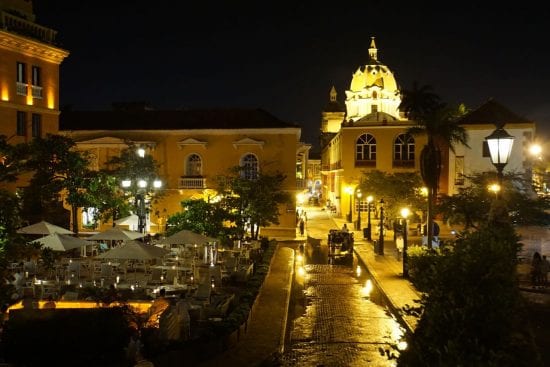
Coffee importer Sustainable Harvest has held LTC throughout Latin America since its launch in 2003 in Oaxaca, Mexico, with smaller versions also occurring in recent years in Rwanda and Australia.
David Griswold, the founder of Sustainable Harvest, has said that his vision behind LTC was to bring together stakeholders in the coffee supply chain to meet face-to-face and build long-lasting and profitable relationships for everyone.
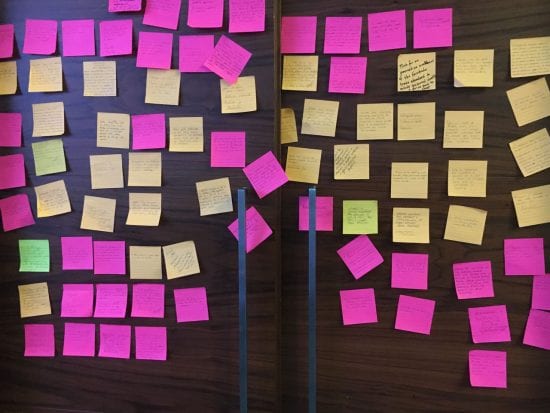
Sessions at this year’s LTC have focused heavily on finding a response to the latest C-market madness in which the price has fallen below $1 per pound, which is below the cost of production for many farmers.
Innovations in technology, brewing, roasting, and marketing have been featured as possible routes to profitability for farmers and their business partners. Increasing consumption within coffee-producing countries is seen as a strategy to sell more coffee, build a coffee culture, and provide a hedge against the whims of the C market in the future.
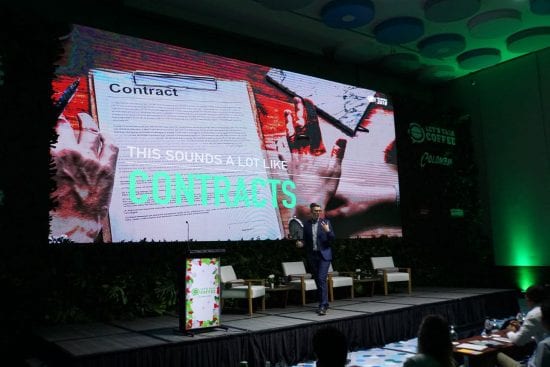
James Hoffmann, of London’s Square Mile Coffee and 2007 World Barista Champion, gave a presentation in which he said it was time for a new social contract between coffee producers and buyers. Specifically, he proposed moving away from the C market, basing coffee prices instead on a value that both buyers and sellers can agree to, creating a beneficial relationship for both. “There’s no reason,” he said, “that we have to be tied to the C market. If I were a farmer I would never sign a contract that was tied to the C market.”
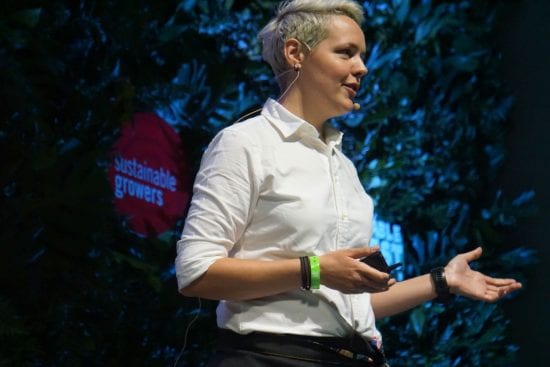
Current World Barista Champion Agnieszka Rojewska gave the audience a treat by re-creating her title-winning performance, and then also served 200 attendees her signature drink, which had been pre-prepared and which required her to pull hundreds of shots throughout the previous evening to make enough for everyone. “I never thought I’d be serving my signature drink to so many people,” she said. “I’m more nervous than I was in Amsterdam.”
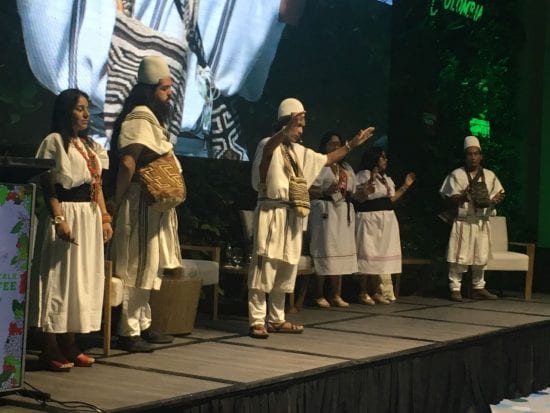
The keyword at LTC is talk, and while there are many presentations, many of the most illuminating exchanges come when attendees have the opportunity to talk about their experiences working in coffee. For example, after a panel on new brewing techniques, one farmer asked why should he care about a brewer that costs thousands of dollars when he’s still using a hand-pulper that his father bought in the 1940s. It was a reminder that all links in the chain do not have access to the same income and technology as others, and the challenges that some face are not the same as what others do.
Agnieszka, similarly, turned a few heads when she said, “I know you as coffee farmers are often poorly paid, but I, as a barista, am also poor.” She said the barista profession in Poland is low status and poorly paid. “My parents still think I’m crazy for doing this,” she added.
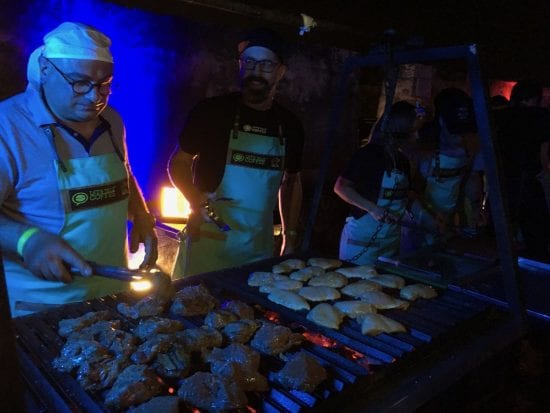
Improving the incomes for both the producers and the baristas can create a more sustainable and more viable future for everyone involved in coffee. At least that’s the hope—and one of the goals of events like Let’s Talk Coffee.


Ken
I believe let’s talk coffee started before 2013
Maybe 2003.
Torrey lee
Thanks, Torrey! Fixed.